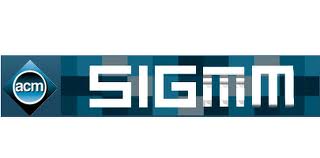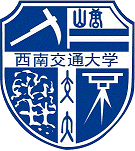Keynote Speaker 1
Multi-user Video Streaming in Cognitive Radio Networks: When QoS Meets Spectrum
Shiwen Mao
McWane Associate Professor, Auburn University
Abstract
The Cisco Visual Network Index report predicts a drastic increase in mobile data and a dominant part of video related data in the near future. Such dramatic increase in wireless video traffic, coupled with the depleting spectrum resource, poses great challenges to today’s wireless networks. It is of great importance to improve the wireless network capacity by promoting more efficient use of spectrum. This goal can be accomplished by the cognitive radio (CR) technology, which is an evolutionary technology for more efficient and flexible access to the radio spectrum. CR represents a new paradigm of wireless communications and networking by efficiently sharing spectrum between licensed users and secondary users. In this talk, we investigate the problem of exploiting the enhanced spectrum efficiency to enable high quality multi-user video streaming in CR networks. We will examine multi-user video multicast in a cellular CR network, multi-user video streaming over two-tier femtocell network, as well as over a multi-hop infrastructureless CR network. We will also introduce our recent work on a principle of decomposition, which can decompose the complex CR multi-user video streaming problem into tractable sub-problems while still achieving optimal solutions. We will conclude this talk with a discussion of open problems.
Bio
 Shiwen Mao (S'99-M'04-SM'09) received Ph.D. in electrical and computer engineering from Polytechnic University, Brooklyn, NY, USA (now NYU Polytechnic School of Engineering) in 2004. He was a research staff member with IBM China Research Lab from 1997 to 1998. He was a Postdoctoral Research Fellow/Research Scientist in the Bradley Department of Electrical and Computer Engineering at Virginia Tech, Blacksburg, VA, USA from 2003 to 2006. Currently, he is the McWane Associate Professor in the Department of Electrical and Computer Engineering, Auburn University, Auburn, AL, USA.
Shiwen Mao (S'99-M'04-SM'09) received Ph.D. in electrical and computer engineering from Polytechnic University, Brooklyn, NY, USA (now NYU Polytechnic School of Engineering) in 2004. He was a research staff member with IBM China Research Lab from 1997 to 1998. He was a Postdoctoral Research Fellow/Research Scientist in the Bradley Department of Electrical and Computer Engineering at Virginia Tech, Blacksburg, VA, USA from 2003 to 2006. Currently, he is the McWane Associate Professor in the Department of Electrical and Computer Engineering, Auburn University, Auburn, AL, USA.
His research interests include wireless networks and multimedia communications, with current focus on cognitive radio, small cells, 60 GHz mmWave networks, Free Space Optical networks, and smart grid. He is on the Editorial Board of IEEE Transactions on Wireless Communications, IEEE Internet of Things Journal, IEEE Communications Surveys and Tutorials, Elsevier Ad Hoc Networks Journal, Elsevier Digital Communications and Networks Journal, Wiley International Journal of Communication Systems, and ICST Transactions on Mobile Communications and Applications. He is the Vice Chair—Letters & Member Communications of Multimedia Communications Technical Committee (MMTC), IEEE Communications Society for 2014—2016, and the Director of MMTC E-Letter for 2012—2014. He serves as Steering Committee Member for IEEE ICME and AdhocNets, Area TPC Chair of IEEE INFOCOM 2016 and Technical Program Vice Chair for Information Systems (EDAS) of IEEE INFOCOM 2015, symposium co-chairs for many conferences, including IEEE ICC, IEEE GLOBECOM, ICCCN, IEEE ICIT-SSST, among others, and in various roles in the organizing committees of many conferences.
Dr. Mao is a coauthor of TCP/IP Essentials: A Lab-Based Approach (Cambridge University Press, 2004), Big Data: State of the Art and Future Perspectives (Springer, 2014), and Video Streaming over Cognitive Radio Networks: When Compression Meets the Spectrum (Springer Science+Business Media, 2014), and co-editor of several books. He is a Distinguished Lecturer of the IEEE Vehicular Technology Society (VTS) in the Class of 2014. He is a co-recipient of The IEEE ICC 2013 Best Paper Award. He received the 2013 IEEE ComSoc MMTC Outstanding Leadership Award and was named the 2012 Exemplary Editor of IEEE Communications Surveys and Tutorials. He was awarded the McWane Endowed Professorship in the Samuel Ginn College of Engineering for the Department of Electrical and Computer Engineering, Auburn University in August 2012. He received the US National Science Foundation Faculty Early Career Development Award (CAREER) in 2010. He is a co-recipient of The 2004 IEEE Communications Society Leonard G. Abraham Prize in the Field of Communications Systems, Runner-up for the 2013 Fabio Neri Best Paper Award, and The Best Paper Runner-up Award at QShine 2008. He also received Auburn Alumni Council Research Awards for Excellence-Junior Award and two Auburn Author Awards in 2011. Mao holds one US patent. He is a member of Tau Beta Pi and Eta Kappa Nu, and a senior member of the IEEE.
Keynote Speaker 2
Greening the Access Infrastructure for Multimedia Communications
Nirwan Ansari
Distinguished Professor of Electrical and Computer Engineering
New Jersey Institute of Technology
Abstract
Provisioning a myriad of emerging bandwidth-hungry multimedia communications and services is exacerbating bandwidth demand across networking infrastructure, notably the access portion, as well as revving up energy consumption in this humongous infrastructure, and thus fueling continuous surge of carbon footprints. Reducing carbon footprints is crucial in alleviating the direct impact of greenhouse gases on the earth environment and the climate change. In the future high capacity access networks, the wireline access part will be made up of fiber-to-the-home or hybrid fiber-to-the-node (FTTN), and the wireless part will be provisioned by various advanced technologies, such as advanced antenna techniques, heterogeneous networks with mixed high/low power base stations deployment, and cooperative communications. Greening such high capacity access networks is a great challenge of the coming decade. To tackle the challenge, we advocate and introduce the "capacity-adaptive" feature into the envisioned network to help decrease the network energy consumption. While many applications at end users are bandwidth demanding, end users may not run these applications all the time. Thus, a significant amount of energy and resources have been wasted by provisioning the same high data rate to end users all the time. Taking advantage of the bursty and dynamic nature of the access network traffic, we propose a capacity-adaptive green access network which reduces the network energy consumption by switching from the "high-capacity high-power" mode into the "low-capacity low-power" mode when the network is lightly loaded.
Acknowledgement
This work has been supported in part by the National Science Foundation under grant no. CNS-1218181.
Bio
 Professor Nirwan Ansari received BSEE (summa cum laude with a perfect GPA) from the New Jersey Institute of Technology (NJIT), MSEE from the University of Michigan, Ann Arbor, and PhD from Purdue University, West Lafayette, IN. He is Distinguished Professor of Electrical and Computer Engineering at NJIT, where he joined in 1988. He has also assumed various administrative positions at NJIT including as NCE Associate Dean for Research and Graduate Studies. He has been Visiting (Chair) Professor at several universities including as High-level Visiting Scientist of 111 Base at Beijing University of Posts and Telecommunications.
Professor Nirwan Ansari received BSEE (summa cum laude with a perfect GPA) from the New Jersey Institute of Technology (NJIT), MSEE from the University of Michigan, Ann Arbor, and PhD from Purdue University, West Lafayette, IN. He is Distinguished Professor of Electrical and Computer Engineering at NJIT, where he joined in 1988. He has also assumed various administrative positions at NJIT including as NCE Associate Dean for Research and Graduate Studies. He has been Visiting (Chair) Professor at several universities including as High-level Visiting Scientist of 111 Base at Beijing University of Posts and Telecommunications.
Prof. Ansari authored Media Access Control and Resource Allocation (Springer, 2013) with J. Zhang and Computational Intelligence for Optimization (Springer, 1997) with E.S.H. Hou, and edited Neural Networks in Telecommunications (Springer, 1994) with B. Yuhas. He has also (co-)authored over 450 technical papers, over one third of which were published in widely cited refereed journals/magazines. He has guest-edited a number of special issues, covering various emerging topics in communications and networking. His current research focuses on green communications and networking, cloud computing, and various aspects of broadband networks.
Prof. Ansari has served on the Editorial Board and Advisory Board of ten journals, including as a Senior Technical Editor of IEEE Communications Magazine (2006-2009). He was elected to serve in the IEEE Communications Society (ComSoc) Board of Governors as a member-at-large (2013-2015). He has chaired ComSoc technical committees, and has been actively organizing numerous IEEE International Conferences/Symposia/Workshops, assuming various leadership roles. He frequently delivers keynote addresses, distinguished lectures, tutorials, and invited talks around the globe. Some of his recognitions include IEEE Fellow (Class of 2009), several Excellence in Teaching Awards, a couple of best paper awards, NCE Excellence in Research Award (2014), ComSoc AHSN TC Outstanding Service Recognition Award (2013), NJ Inventors Hall of Fame Inventor of the Year Award (2012), Thomas Alva Edison Patent Award (2010), and designation as an IEEE Communications Society Distinguished Lecturer (2006-2009). He has also been granted over twenty-five US patents.











































